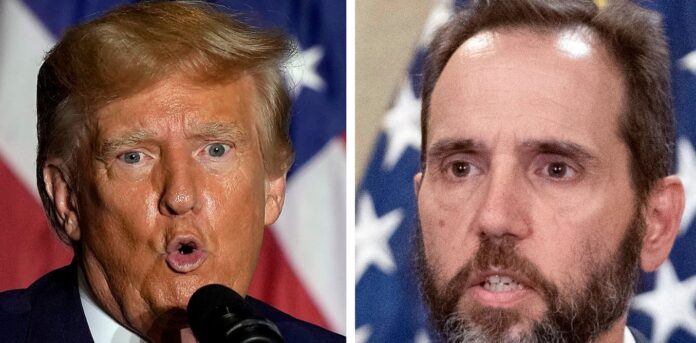Targeting Trump for prosecution – 4 essential reads on how the Jan. 6 investigation laid the groundwork for the special counsel

By Naomi Schalit, The Conversation
With the news on July 18, 2023, that Special Counsel Jack Smith had informed former President Donald Trump that he was a target of the federal investigation into efforts to overturn the 2020 presidential election and the related Jan. 6, 2021, attack on the U.S. Capitol, speculation began immediately among political analysts and pundits about what charges the former president might face.
But criminal investigations are not public, so drawing conclusions about what charges Smith might bring would have to rely on indications from other sources.
One place to find some possible hints: Smith’s investigation into Trump came on the heels of the sprawling public investigation of the Capitol insurrection by the House Select Committee to Investigate the January 6 Attack, known colloquially as the House January 6 committee.
The committee interviewed 1,200 people, including former Trump staff, state election officials and people who had participated in the Jan. 6 attack. Its final report was 845 pages long and provided many previously unknown facts and details about what happened on Jan. 6 and in the days and weeks leading up to it. The committee recommended Trump be charged with conspiracy to defraud the United States, obstruction of an official proceeding of Congress, conspiracy to make a false statement and aiding an insurrection.
Here are four of The Conversation’s stories about the committee’s work to help you understand what it did, what it found and how its work may fit into what could be yet another historic prosecution of a former U.S. president. Three of the four were written by Claire Leavitt, a Smith College scholar of congressional oversight whose analyses are grounded in real-world experience: She spent a year working on the Democratic majority staff of the House Committee on Oversight and Reform.
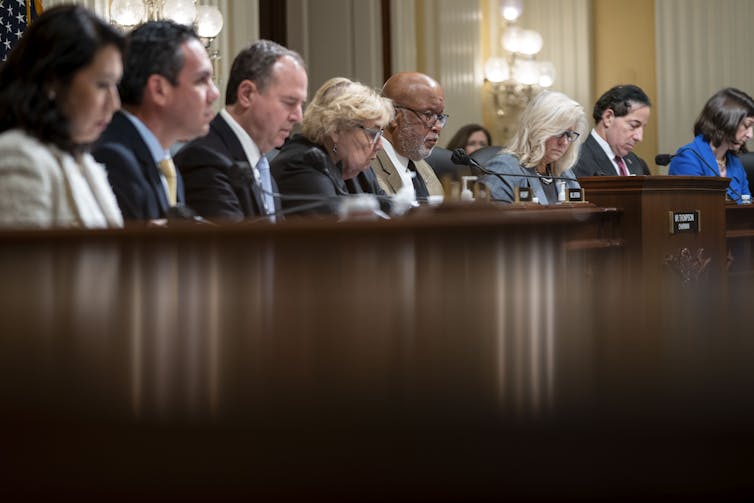
1. What’s an investigation and what’s a hearing?
As the committee prepared for its first public hearing, Leavitt laid out the two-pronged functions of the committee: investigation first, public hearings second.
“Blockbuster hearings are fascinating and even fun,” wrote Leavitt. “They dominate the political and cultural conversation and prompt movie stars to show up in ‘Saturday Night Live’ cold opens. But what do they actually accomplish?”
Such high-profile hearings, wrote Leavitt, actually represent the end of the investigative process. They “tend to be choreographed affairs, presenting a tightly woven narrative to the public. By now, most of the investigative work has already been done.”
Hearings “establish a shared foundation of facts that can inform short- and long-term debates – around the dinner table, in the media, in Congress and among scholars – over how major events should be interpreted,” wrote Leavitt. And they can also serve as a “a kind of preemptive justification for specific legal and legislative actions that may follow the investigation.”
For example, Leavitt wrote, “if the committee does end up recommending criminal charges against Trump and his allies, the hearings have already explained the legitimacy of these charges to the public.”
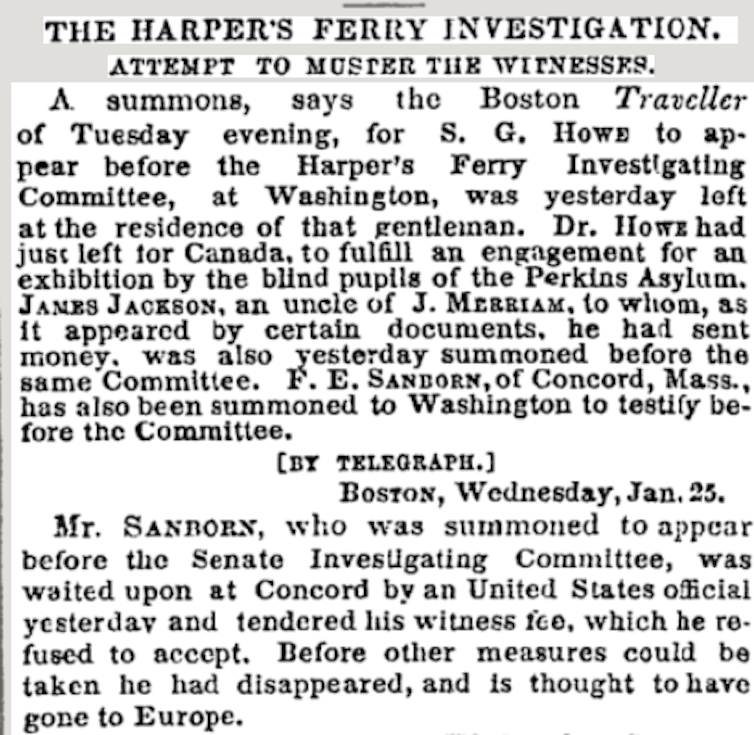
2. Historic event given time-tested congressional scrutiny
Leavitt also set the January 6 committee’s work – really, its very existence – in historical context. For all the complaints by Trump and his allies that the investigation was illegitimate and a “witch hunt,” Leavitt wrote that the committee’s work fit squarely into the U.S. democratic tradition.
“The committee’s recommendation to prosecute a former president was unprecedented. But its investigation of the events of Jan. 6, 2021, fell squarely within Congress’ power and added a new chapter to a centurieslong history of congressional investigations into government scandals and failures,” she wrote.
Congress has the power to investigate. “Its standing and special committees,” wrote Leavitt, “known as select committees, regularly conduct both preemptive oversight and retroactive investigations. Their aim: to identify specific cases of wrongdoing both inside and outside government.”
And it’s the committee’s identification of wrongdoing that could have provided fodder for Jack Smith’s investigation of Trump.
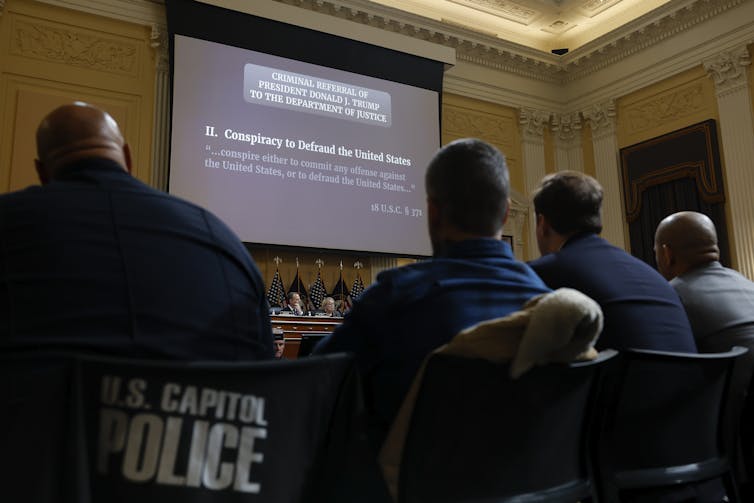
3. Legitimizing the drive for accountability
Did the January 6 committee pave the way for Jack Smith to charge Trump in connection with the events to overturn the election?
With its decision to recommend charges against Trump, the January 6 committee members, wrote Santa Clara University legal scholar Margaret Russell, had “reached the brink. This bipartisan committee, which comprised seven Democrats and two Republicans, decided unanimously that backing away from criminal charges would be a dereliction of its duty to recommend, based on what it has found.”
The magnitude of the charges the committee recommended, “particularly the insurrection one, is unprecedented,” wrote Russell.
And while the committee itself could not force charges to be brought, Russell said their recommendation had “very strong teeth in the sense of urging the Department of Justice to make sure that there is accountability.”
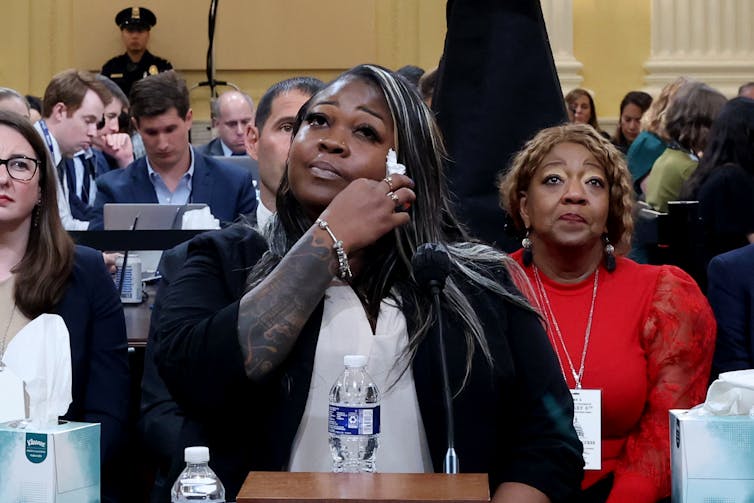
4. History takes time
Regardless of whether the House January 6 committee’s work contributed to Special Counsel Jack Smith’s investigation, its work should be seen as historic, wrote Leavitt. But that will take time to become clear.
“Assessing the full impact of the investigation requires patience – probably decades’ worth,” Leavitt wrote.
“The process by which events become part of the public consciousness is slow and often imperceptible, but it is a legacy arguably as important as the discrete electoral or policy outcomes that emerge – or not – in the short term.”![]()
Naomi Schalit, Democracy Editor, The Conversation
This article is republished from The Conversation under a Creative Commons license. Read the original article.


